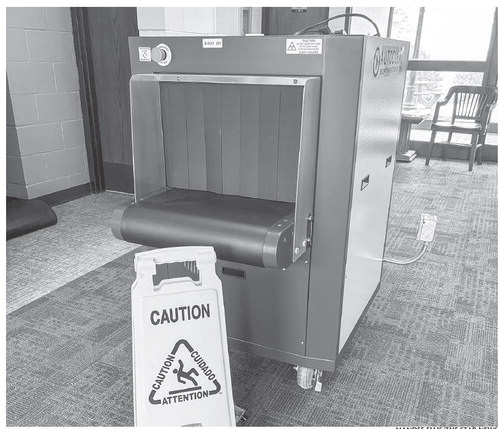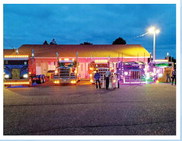Regional cities identified as Wisconsin’s Economic bellwether communities
Just as swing states help predict political outcomes, certain U.S. towns act as early warning systems for the economy. These “signal cities” are so attuned to local shifts in hiring, consumer behavior, or supply chains that their tremors often ripple across the entire state.
To uncover which towns hold this predictive power, MarketBeat, a financial media company, surveyed 3,021 business leaders, asking: where does change happen first? The result is a map of communities that economists might want to keep a closer eye on - not for what’s already happened, but for what’s coming next.
Business leaders in Wisconsin said these are the state's top 'signal cities': Eau Claire — Home to University of Wisconsin-Eau Claire and a major hospital system, the town tracks employment and spending patterns among students, young professionals, and older residents alike. When retail slows or housing listings rise, Eau Claire tends to reflect early signs of strain. Its growing population and expanding suburbs offer a bellwether for how mid-sized cities across Wisconsin are responding to inflation and service-sector instability.
Wausau — Wausau’s economy leans on construction, skilled trades, and health services, making it highly responsive to material prices and wage trends. If job sites slow down or clinics pause hiring, it often points to economic tightening in central Wisconsin. The town also reflects how rural counties are navigating workforce shortages and interest rate hikes. Wausau serves as a reliable snapshot of how nonurban regions are handling overlapping cost and employment pressures.
Fond du Lac — Fond du Lac’s economy blends heavy machinery, insurance, and small-town retail - sectors that show stress early when costs rise. If production schedules shrink or local credit unions tighten standards, the town often signals broader caution across southern Wisconsin. Fond du Lac reflects how blue-collar families and mid-sized manufacturers are absorbing wage shifts, healthcare premiums, and energy costs - especially in areas just outside Milwaukee’s economic orbit.
While economists and analysts look at charts, locals often rely on gut instinct and visible shifts in their own communities. According to the survey, 61% of respondents said they trust their local leaders or business owners to recognize the early warning signs of a downturn. The remaining 39% expressed doubt, suggesting that trust in economic foresight is far from universal.
When asked what they'd cut first if money got tight, Wisconsinites were surprisingly aligned:
• 40% said they'd reduce spending on eating out and entertainment.
• 27% would hold off on major purchases like a car or new appliances.
• 22% would put off travel or vacation plans.
• 12% would pull back on donations or memberships.
So, what actually triggers alarm bells for people?
Nearly half of all respondents - 46% said the clearest red flag is when a major local employer starts laying off staff. That was followed by local businesses cutting hours or closing (30%), while just 9% cited rising home listings or rent drops. Only 8% paid close attention to changing patterns in community events or public transit use - the subtler signs that economists often track.
When it comes to reading the local economic mood, most respondents said they’re watching the public, not the policymakers: • 43% believe consumer behavior (shopping habits, restaurant traffic, etc.) is the best predictor.
• 27% point to major employers or factories.
• 23% put their faith in local government or public services.
Just 7% look to real estate trends. And finally, how do people personally notice the first signs of economic weakness in their area?
• 34% observe storefronts closing or turning over more frequently.
• 32% spot fewer job openings or hiring freezes.
• 20% notice less traffic in retail stores and restaurants.
• 16% pick up on housing prices stalling or dropping.
“As we move through an unpredictable economic landscape, these signal cities offer something rare: real-time glimpses into how economic shifts take root and ripple,” says Matt Paulson, founder of MarketBeat.





